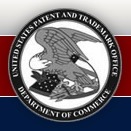Two new Apple patents involving cache management and call path enforcement have appeared at the US Patent & Trademark Office.
Patent number 20110043528 is for cache management for glyph display. This is directed to managing a cache size for glyphs used to display text or other information in an electronic device. In particular, this is directed to defining a variable hit rate for retrieving glyphs loaded in cache to limit the number of times the device is required to read glyphs from storage.
The hit rate can vary based on any suitable number or type of factors, including for example the characters previously displayed or to be displayed in the future, the system requirements for system memory, or any other suitable factor. In some embodiments, the hit rate can vary when characters in a second alphabet are displayed among or after characters in a first alphabet (e.g., Japanese characters in a listing of Latin characters). The inventors are Dmitriy Solomonov, Michael lIngrassia and James Erick Mason.
Patent number 20110047622 involves a system and method for call path enforcement. Disclosed herein are systems, computer-implemented methods, and computer-readable storage media for call path enforcement. The method includes tracking, during run-time, a run-time call order for a series of function calls in a software program, and when executing a protected function call during run-time, allowing or causing proper execution of a protected function call only if the run-time call order matches a predetermined order.
The predetermined order can be an expected run-time call order based on a programmed order of function calls in the software program. The method can include maintaining an evolving value associated with the run-time call order and calling the protected function by passing the evolving value and function parameters corrupted based on the evolving value. The protected function uncorrupts the corrupted parameters based on the passed evolving value and an expected predetermined call order. A buffer containing the uncorrupted parameters can replace the corrupted parameters. The inventors are Ginger M. Myles, Srinivas Vedula, Gianpaolo Fasoli, Julien Lerouge, Tanya Michelle Lattner and Augustin J. Farrugia.
— Dennis Sellers



